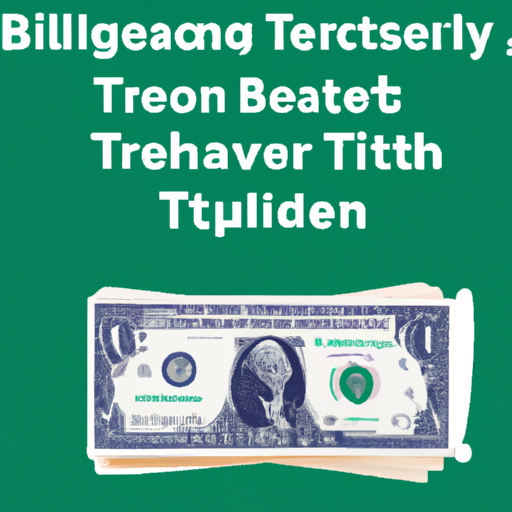Tether’s CTO Reveals Massive US Treasury Holdings Surpassing Major Economies
Key Points:
- Tether’s CTO, Paolo Ardoino, unveils the extensive US Treasury bill holdings of the company.
- Tether’s US Treasury holdings surpass those of prominent economies such as the United Arab Emirates, Australia, Japan, and Mexico.
- The revelation comes in a post on X (formerly Twitter), highlighting Tether’s significant investment in US Treasury bills.
- Tether’s decision to hold substantial US Treasury bills may impact the stability of the cryptocurrency market.
Reykjavík, Iceland – In a surprising revelation, Tether’s Chief Technology Officer (CTO), Paolo Ardoino, has disclosed that the company possesses a staggering amount of US Treasury bills, surpassing the holdings of prominent economies like the United Arab Emirates, Australia, Japan, and Mexico. Ardoino made this revelation in a recent post on X, formerly known as Twitter, detailing Tether’s substantial investment in US Treasury bills and its potential implications for the cryptocurrency market.
While Tether, the popular stablecoin issuer, is widely recognized for its association with the cryptocurrency market, its foray into traditional investment options like US Treasury bills has caught many by surprise. According to Ardoino’s post, Tether’s current hold in US Treasury bills exceeds the holdings of several major economies, establishing the company as a significant player in the global financial landscape.
The decision to allocate a considerable portion of its assets to US Treasury bills may indicate Tether’s efforts to diversify its investment portfolio and minimize risks associated with the volatility of cryptocurrencies. US Treasury bills are renowned for their stability and low risk, making them an attractive option for companies looking to safeguard their capital in times of market turbulence.
Furthermore, Tether’s choice to invest in US Treasury bills can have substantial implications for the cryptocurrency market as a whole. The stability provided by Tether’s US Treasury holdings may instill confidence and attract investors who have been hesitant to engage with the highly volatile cryptocurrency space. This move can potentially bridge the gap between traditional finance and the emerging digital asset sector, offering a more secure and regulated environment for investors.
However, some experts argue that Tether’s heavy reliance on US Treasury bills could undermine the decentralized nature of cryptocurrencies. This criticism stems from the fact that US Treasury bills are centralized instruments tied to a traditional financial system, contradicting the decentralized ethos of blockchain technology. The potential concentration of power in the hands of a single entity, albeit indirectly, raises concerns about the overall stability and long-term sustainability of the cryptocurrency market.
In conclusion, Tether’s revelation of holding more US Treasury bills than significant economies like the United Arab Emirates, Australia, Japan, and Mexico sheds new light on the company’s investment strategies. While diversifying into more stable and traditional assets may enhance the stability and adoption of cryptocurrencies, it also poses potential challenges to the decentralized nature of the industry. As the cryptocurrency market continues to evolve, finding the right balance between stability and decentralization will play a crucial role in its long-term success.
Hot Take: Bridging Traditional and Digital Finance
Tether’s massive investment in US Treasury bills signifies a noteworthy attempt to bridge the gap between traditional finance and the world of cryptocurrencies. By bolstering stability and reducing volatility, Tether aims to attract both traditional investors and newcomers seeking a more secure environment. However, this move also raises concerns with regards to centralization and the fundamental principles of decentralization. Striking a delicate balance between stability and decentralization will be crucial to the sustainability and continued growth of the cryptocurrency market.
